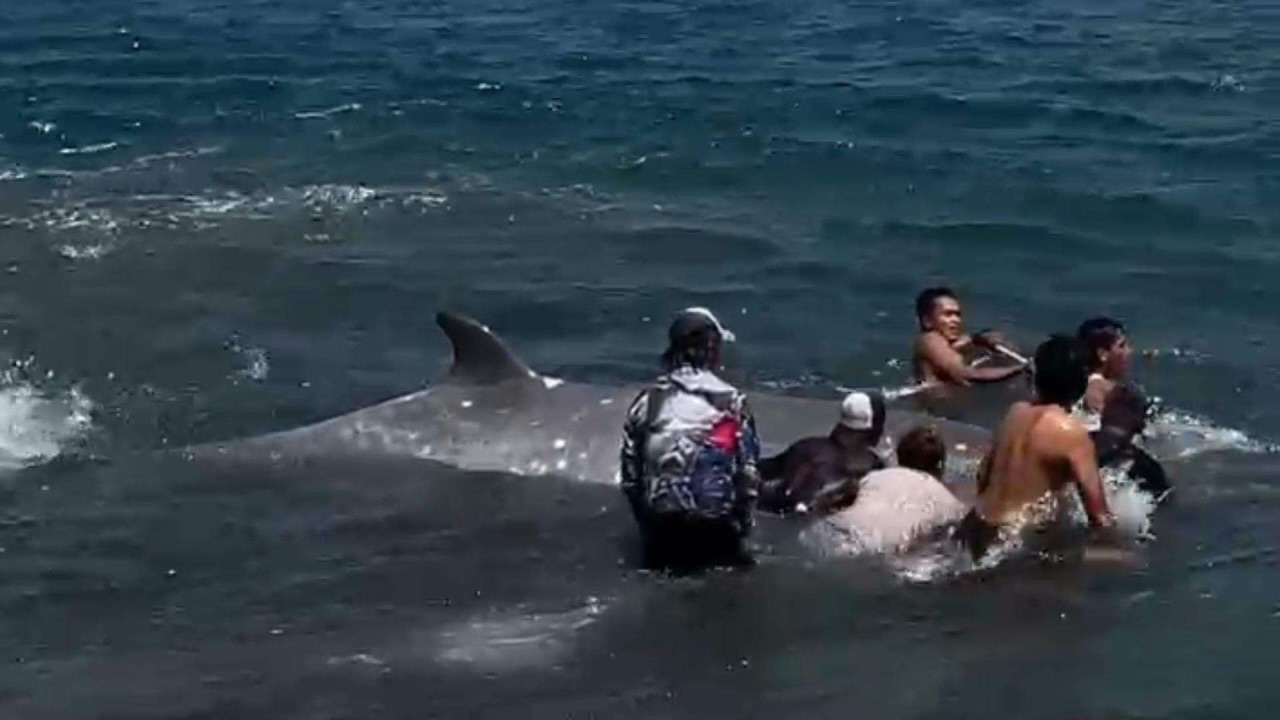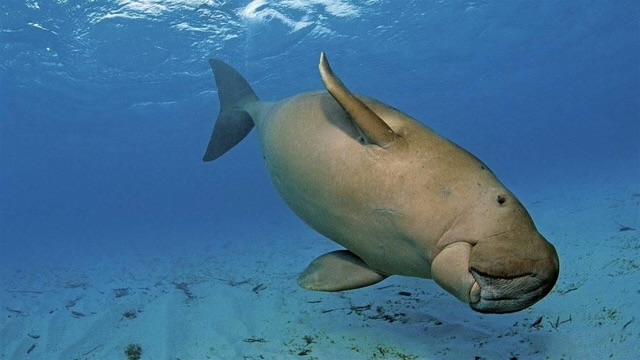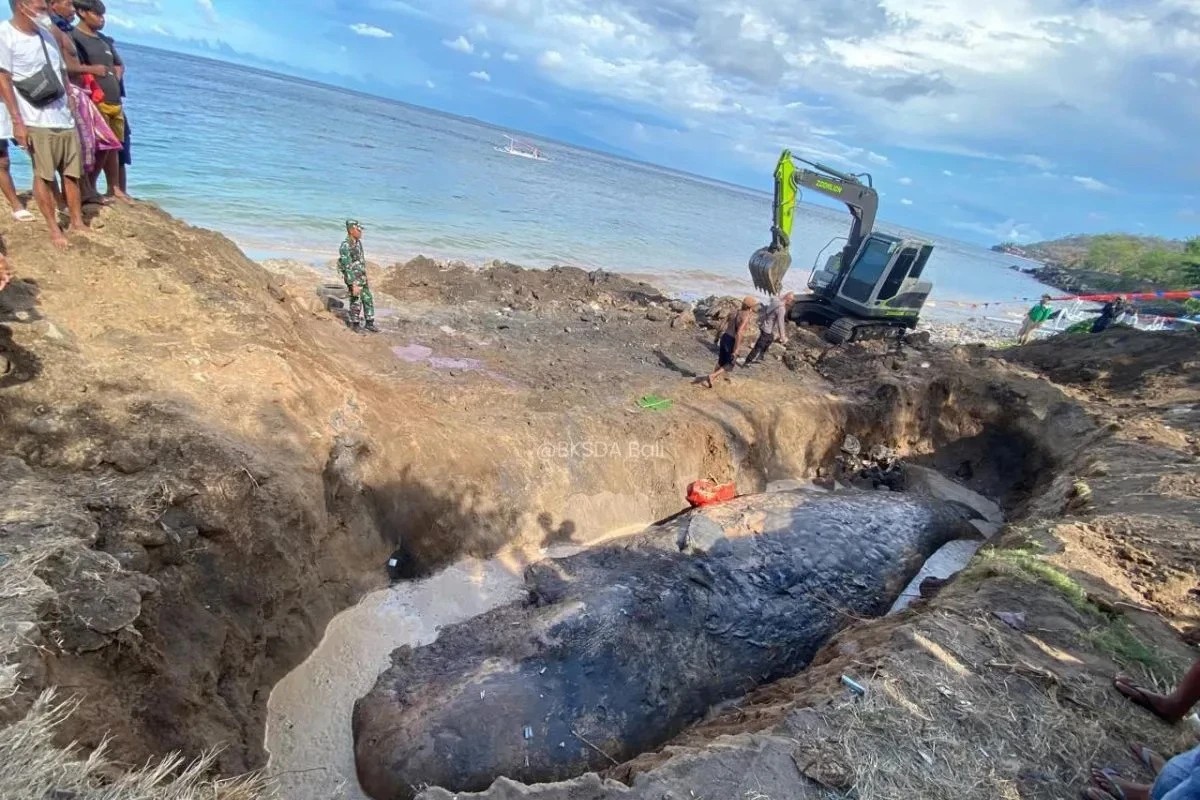The fishermen in Gilimanuk certainly didn't expect such a catch, but when they set out to work, the two-meter animal was already drifting in the shallows. The mammal was still showing signs of life, so a rescue operation had to be swiftly organized.

The danger to the animal was obvious: the current was pushing it towards the shore, and without help, it would hardly have made it back to the strait. Several men tied a rope around the sea creature's body and pulled it in unison, turning it towards open water. The maneuver was successful, and after a few minutes, the animal made its first strides towards the deep. The rescue-fishermen stayed until the mammal moved further towards the Bali Strait.
According to the fishermen, it could have been a dolphin. However, later the village head, Ida Bagus Tony Wirahadikusuma, clarified that it was more likely a whale, as they are more frequently found in these waters than dolphins. He also noted that this was not the first case of marine mammals washing ashore in this area. There have been several similar incidents following the ferry crash, but unfortunately, they didn't manage to save the animals then.
A month earlier, a similar tragedy in another area caught the attention of ecologists. A dead dugong was found in Jembrana. This rare sea animal rarely appears in Balinese waters. Officials from the Nature Conservation Agency (BKSDA Bali) examined it and discovered that the dugong had respiratory inflammation and abnormal tissue changes. All these are signs of an unnatural death.

Ecologists cite several reasons why marine mammals are increasingly found ashore. The key factor is climate change, which throws animals off their migration routes. Some lose strength and wash ashore, while others end up in areas with insufficient food.
Plastic creates no less of a problem. Experts have documented cases where garbage was found in the stomachs of animals washed ashore. The ingestion of plastic by fish and mammals leads to digestive system blockages and death.
Indonesia is now establishing a response system for such incidents. Local environmental services and the police are being involved in rescue operations. However, experts say that in the first minutes, everything depends on the people on the shore. This was proven by the incident in Gilimanuk, where the fishermen's initiative and a simple rope determined the animal's fate.

You can add one right now!